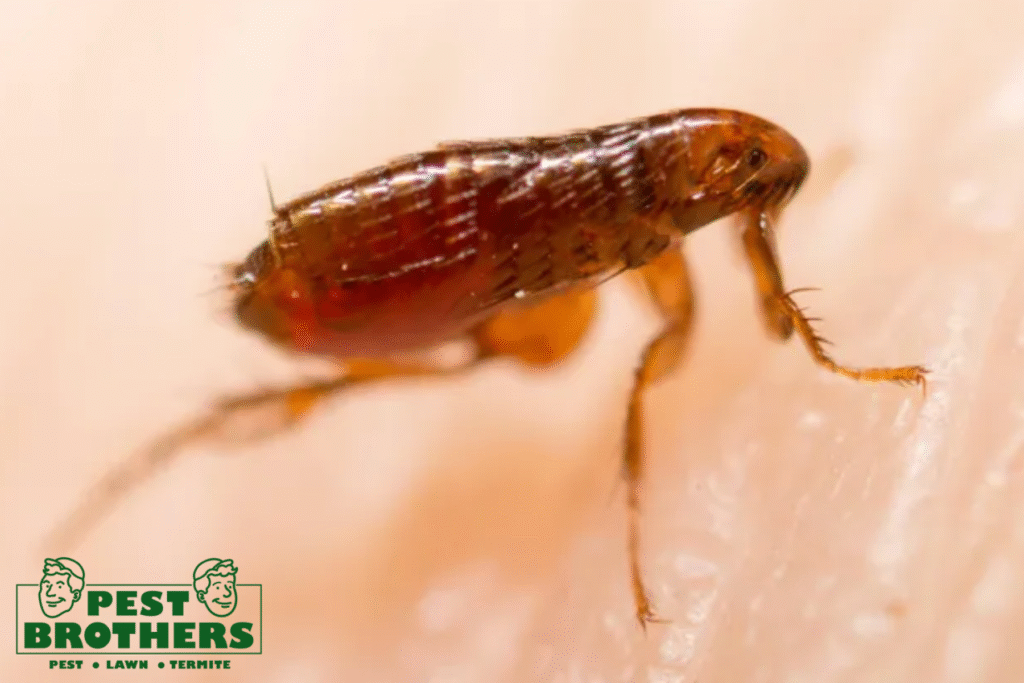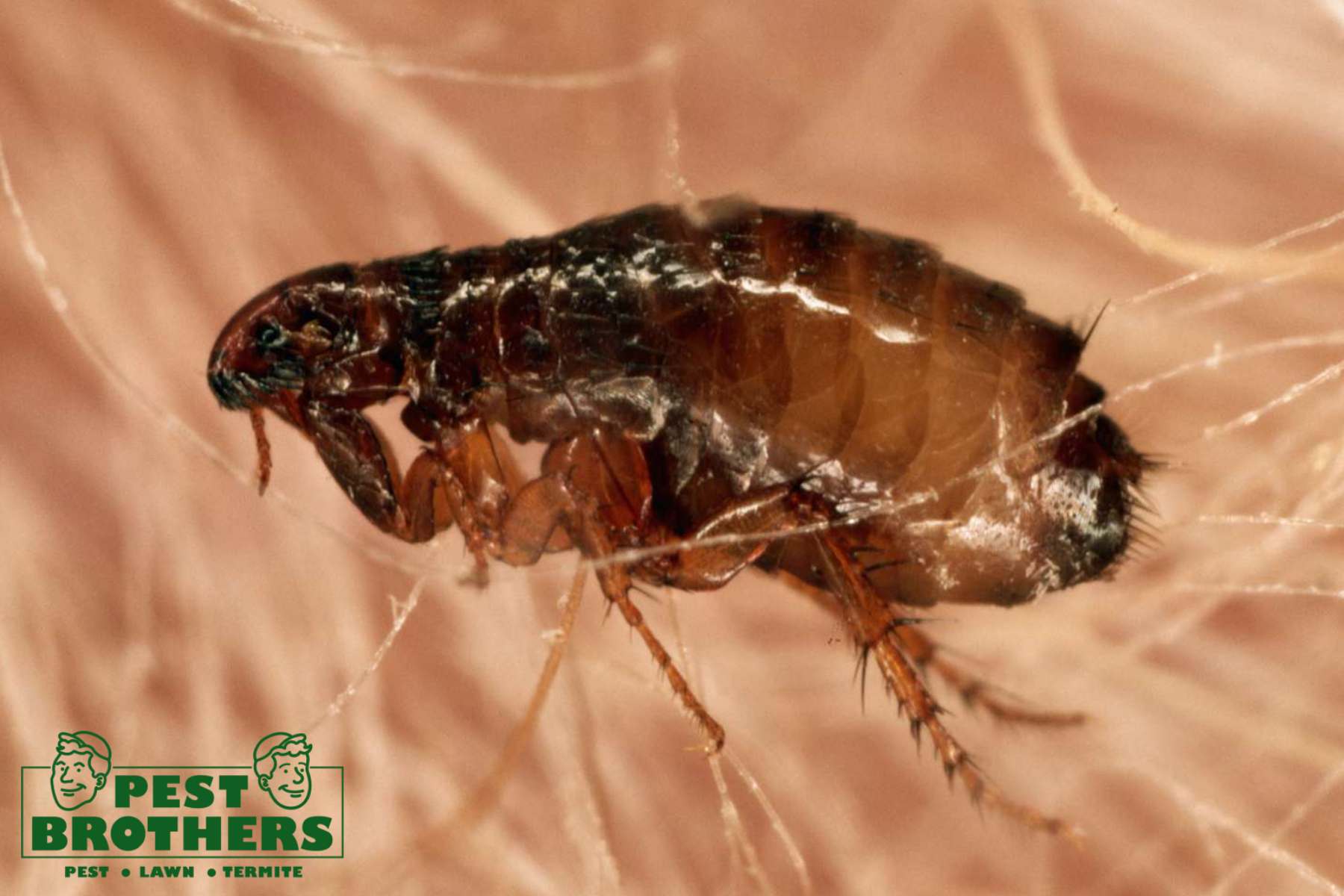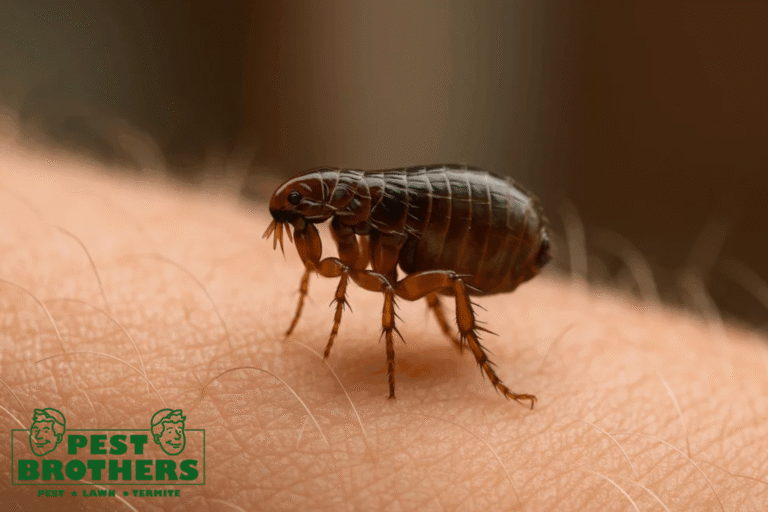Fleas are among the most persistent pests homeowners encounter, and their resilience makes them difficult to eliminate. One of the most common questions is, How long do fleas live without a host? Understanding this is crucial because even when pets are treated, fleas can linger in your home, posing a continued risk to both humans and animals.
Flea Life Cycle: Why a Host Matters
Fleas undergo a complete metamorphosis, progressing through egg, larva, pupa, and adult stages. While adult fleas feed on blood from a host, their eggs and pupae can survive in your home environment without one. This is why flea infestations often persist even after treating pets.
Adult fleas can survive for several days to a few weeks without a host, depending on temperature, humidity, and access to alternative food sources. Larvae feed on organic debris, including adult flea feces, and can develop in carpets, bedding, furniture, and cracks in floors. The pupal stage is especially resilient—pupae can remain dormant for months, waiting for favorable conditions to emerge as adult fleas.
How Long Can Fleas Live Without a Host?
Knowing how long can fleas live without a host is essential for effective home protection. Adult fleas typically survive 2–3 weeks without a host, but under optimal conditions, they may survive longer. Pupae are even more persistent, able to remain dormant for several months, sometimes up to a year, waiting for the presence of a host to trigger emergence.
This ability to lie in wait means that even if your pets are flea-free, your home can still harbor a population ready to infest once conditions are right. The eggs and larvae do not feed directly on a host, but they rely on the environment for survival, making thorough home treatment a key factor in flea control.
Common Areas Where Fleas Persist
Fleas can infest various areas in your home, including:
- Carpets and rugs: Flea eggs and larvae often accumulate in fibers.
- Pet bedding and furniture: Frequent resting areas for pets are prime habitats.
- Cracks and crevices: Larvae can hide in floorboards and baseboards.
- Upholstery: Furniture used by pets or family members can harbor eggs.
Identifying these zones and targeting them during treatment is critical for eliminating fleas and preventing re-infestation.
The Risks of Untreated Flea Infestations
Even a small flea population can cause discomfort and potential health issues for pets and humans. Fleas are known for biting, causing irritation, allergic reactions, and in severe cases, transmitting diseases such as tapeworms or bacterial infections. Persistent infestations can also lead to stress for pets and household members alike.
Because fleas can survive without a host for extended periods, ongoing monitoring and treatment are essential. Waiting until an infestation becomes visible often means the population has already established itself in multiple areas of the home.
Effective Strategies for Flea Control
The most effective way to manage fleas is a comprehensive approach combining treatments for pets and the home environment. Licensed technicians can assess infestation levels, target key areas, and apply treatment safely using environmentally friendly and safe pesticides.
Interior Treatment
Treatment should focus on carpets, furniture, pet bedding, and other areas where flea eggs, larvae, and pupae are present. Licensed pest control Weston FL professionals can perform thorough inspections and provide targeted solutions that disrupt the flea lifecycle.
Exterior Treatment
Outdoor areas where pets frequent can also harbor flea populations. Applying treatment to lawns, patios, and the shaded regions helps reduce the chance of re-infestation. Integrated Pest Management practices, including regular cleaning and environmental modifications, further enhance protection.
Ongoing Monitoring and Prevention
Fleas are persistent, so consistent monitoring is necessary. Scheduling regular inspections and follow-up treatments ensures that any remaining eggs, larvae, or newly emerged adults are eliminated before they can establish a full infestation. This approach also protects homes from future infestations and gives homeowners peace of mind.
DIY Approaches vs. Professional Help
While home remedies such as vacuuming, washing bedding, or using over-the-counter products may provide temporary relief, they rarely eliminate the entire flea population. The pupal stage, in particular, is highly resilient and often requires professional intervention to ensure complete eradication.
Working with licensed Weston pest control experts guarantees a safe, effective, and long-term solution. Professionals can assess the severity of the infestation, treat both pets and their environment, and provide guidance for maintaining a flea-free home.
Tips for Maintaining a Flea-Free Home
- Regular pet grooming: Keep pets treated with veterinarian-approved flea control products.
- Frequent cleaning: Vacuum carpets, furniture, and pet bedding regularly to remove eggs and larvae.
- Environmental modifications: Reduce humidity, repair cracks, and remove debris where fleas can thrive.
- Routine inspections: Schedule periodic professional inspections for early detection and treatment.
Implementing these measures alongside professional flea control creates a comprehensive defense against re-infestation and protects your home year-round.

Conclusion
Fleas without a host may seem harmless at first, but their resilience and ability to survive in the environment make them a serious concern for any household. Understanding how long do fleas live without a host and taking preventive measures is essential for keeping your home and pets safe. Early intervention, thorough treatment, and ongoing monitoring are key to effective flea management.
About Pest Brothers, Inc. – Pest, Lawn, & Termite Control
Pest Brothers, Inc is a licensed and insured pest control company serving Florida. Offering comprehensive flea control near me services, the company provides solutions for general household pests, lawn care, rodent and wildlife removal, termite treatments, and more. Their team of licensed technicians uses environmentally friendly and safe pesticides and integrated pest management practices to ensure a safe and pest-free environment.


